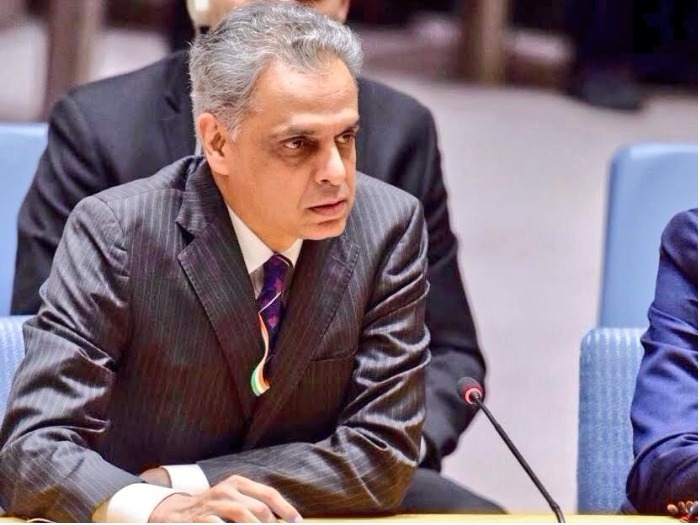India lashes out at UN for not bringing reforms to increase in membership of Security Council
New York, February 2: India on Thursday slammed United Nations for not being able to bring major reforms in the increase in the membership of the Security Council, other matters and said that the lack of rolling text is a bane for UNSC reform negotiations and endangers the credibility of UN General Assembly.

Notably, the India’s Permanent Representative to the United Nations Syed Akbaruddin at an informal meeting of the Plenary on the Intergovernmental Negotiations on the question of equitable representation on and increase in the membership of the Security Council said that all the countries addressed called for early reform in the increase in the membership of the Security Council but that could not happen yet.
Indian Ambassador Syed Akbaruddin raised few questions over United Nations saying, “why have we not made satisfactory progress if all are agreed on the need for reform? What is it that we can do now that will enable progress towards the goal of reform of the Security Council? What is it that hasn’t been discussed? What is it that can open the magical door for negotiations or what is it that can bring momentum into our work?”
He further said that the answers to these questions are rather indirect and do need a reflective approach to our work. Akbaruddin said, “I can well understand that we are permeated by a feeling of “path dependency”. The path that we have adopted is of articulating positions, at times clarifying them, and orally responding to views. Even in the 10th year of the IGN, we have yet to have a normal negotiation process. What does one mean by a normal process? A normal process in every other room in this building entails an initial articulation of views, followed by written documentation, which is the basis for negotiations that are carried forward from one meeting to another, perhaps one session to another. The lack of a rolling document is the bane of our current process. “
“It is not our case that the document that you prepare needs to have only one option. It can have, in every cluster, every option that can be distilled. Such a document will provide clarity to where we stand, what are the options, who is proposing what and what are the interlinkages. Documenting positions in a holistic and transparent manner is what we seek from you as the way forward,” the Indian Ambassador noted.
Akbaruddin, in the end, said, “Opposition to a certain position is normal and indeed democratic; opposition to normalizing the process is not. Allowing drift in terms of normalizing the process endangers the legitimacy and credibility of this mechanism and the General Assembly itself. We cannot any longer be seen as not having a normal process even as all other aspects of UN reform, launched much later, move towards fruition. We cannot do so even as the Secretary-General often says that ‘No reform of the UN would be complete without Security Council reform.’ A piecemeal reform effort, in our view, is neither adequate nor sustainable.”